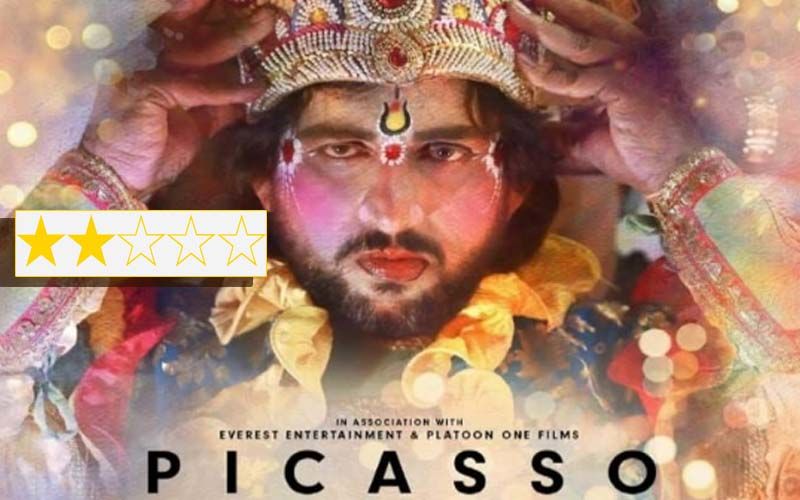Picasso Review: Abhijeet Mohan Warang's Marathi Film Starring Prasad Oak And Samay Sanjeev Tambe Is An Honourable Misfire
Marathi film Picasso starring Prasad Oak And Samay Sanjeev Tambe has failed to evoke the right emotions. Catch full review here.

__2021-3-25-6-11-36_original.jpg)
A deathly stillness shrouds the characters and ambience of Picasso, as though the writer-director Abhijeet Mohan Warang shared his characters’ hopelessness. Even the forced upbeat ending cannot help us to escape from the feeling that we are watching a feast of grief laid out on a table of tragedy. Picasso is supposedly a sum-total of many factors. It tries to be a poignant comment on the dying cultural art-forms, especially rural folk traditions. In this case, it is the strain of folk theatre known as Dasavatara, still being staged in remote areas of Maharashtra. We meet Pandurang (the talented Prasad Oak) telling his young son not to waste his time dabbling with fine arts.
“You don’t want to end up a failure like me,” the father is teary-eyed. The son, played by a passably curious Samay Sanjeev Tambe, looks on impassively. He has just been informed at his school that he has won a prestigious scholarship to an art school in Spain for which he needs money. The dying embers of one fading artiste counseling another hopeful young artiste are never ignited. The narrative feels inert, almost dead carrying as it does the heavy weight of social comment without the accompanying levity of expression that would keep all preachification at bay.
I expected some hefty father-son scenes. While Prasad Oak as the father does instill a sense of tragic doom and dormant drama to the proceedings, the boy playing the key role of the son is unable to comprehend the socio-cultural references that his role must carry. He just looks like a little boy who has no idea why his father is jabbering on about lost opportunities.
Worse still, most of the playing time is devoted to the staging of a Dasavatara play in a village compound where the audience looks as interested as we are likely to be in this film. It is sad but true that the film fails to hold our attention. A rare film such as this which attempts to make a statement on the dying cultural traditions of rural India should have been brighter and more involving in tone. What we feel for Pandurang and his son is a distant sympathy. And that’s just not enough.
Image source: imbd/Youtube/amazoneprimevideoIndia
Image source: imbd/Youtube/amazoneprimevideoIndia

_2024-12-18-6-32-38_thumbnail_2025-12-18-11-42-19_small.jpg)